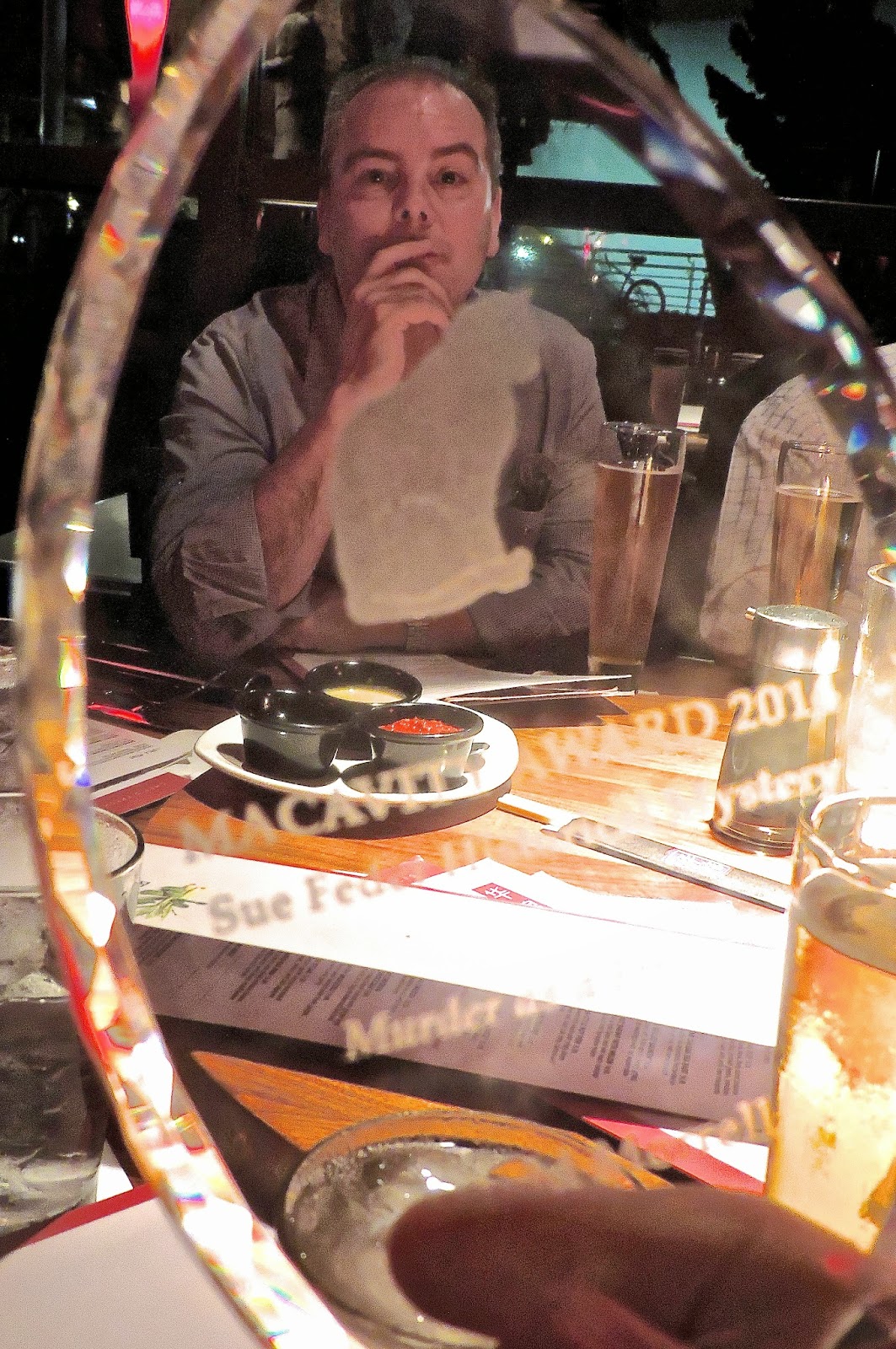Max Allan Collins will discuss other writers during a panel I'll moderate at
Bouchercon 2014 next month, but his own work is worth reading as well. His three most recent Quarry novels, the latest in a series that began in the 1970s, suggest that Collins shared the savvy professionalism of the pulp and paperback-original writers who will be the panel's main subject.
The three books—
Quarry in the Middle,
Quarry's Ex, and
The Wrong Quarry, each published by Hard Case Crime—begin with the hitman/entrepreneur protagonist, Quarry, embarking on a job. (Collins sets the books in the Reagan era and has just enough fun with the period's social, political, and, most of all, musical trappings to remind readers of the setting without getting in the story's way.)
Quarry became a hitman after military service in Vietnam, where he learned to kill; killed his boss after the boss cheated him; then created and exploited a niche in the murder market: He uses his boss' old files to track the contract killers long enough to figure out who their targets are, then goes to the targets and offers to kill the killers for a handsome fee—which he does in due course, about a third of the way through each book. And that's where the real fun starts, and Quarry is forced to turn detective and figure out who the bad guys really are.
This format lets Collins exploit any number of crime and adventure conventions. Quarry is a disillusioned Vietnam vet, though without the psychological baggage. He's a tough-guy ass-kicker with a bit of the wise-cracking self-awareness of the Saint. He's a mildly self-effacing babe magnet, with an amiable susceptibility to women, a
Shell Scott with more sex and fewer extravagant anatomical similes. And, when compelled to figure out who's really who, and who wants what and why, he makes a more than credible detective.
Along the way, the books' (possible) crime-fiction references include Richard Stark's Parker:
Quarry in the Middle has one character apprehensive that Quarry plans to rob a casino, a la
The Handle. But Quarry laughs and reassures his nervous interlocutor that he, Quarry, is part of no
plunder squad. (One of Collins' other series pays amusing tribute to crime and espionage classics in such titles as
A Shroud for Aquarius and
The Baby Blue Rip-Off.)
I don't know how the Quarry series has changed over the years, whether the earlier novels are more straightforward hitman tales than these later ones. Nor do I know whether those early books partake as freely of the crime-fiction smorgasbord. But
Quarry in the Middle, Quarry's Ex, and
The Wrong Quarry take a '50s-style tough guy, give him a '60-style back story, and set the results in the 1970s. Pastiche? Maybe, but by God, Collins pulls it off, and has lots of fun doing it.
==============
Max Allan Collins will be part of my Beyond Hammett, Chandler, and Spillane: Lesser Known Writers of the Pulp and Paperback Eras panel Friday, Nov. 14, 3 p.m. at Bouchercon 2014 in Long Beach. See you there.
© Peter Rozovsky 2014Labels: Bouchercon, Bouchercon 2014, Hard Case Crime, Max Allan Collins, Quarry, Richard Stark, Shell Scott







































.jpg)













